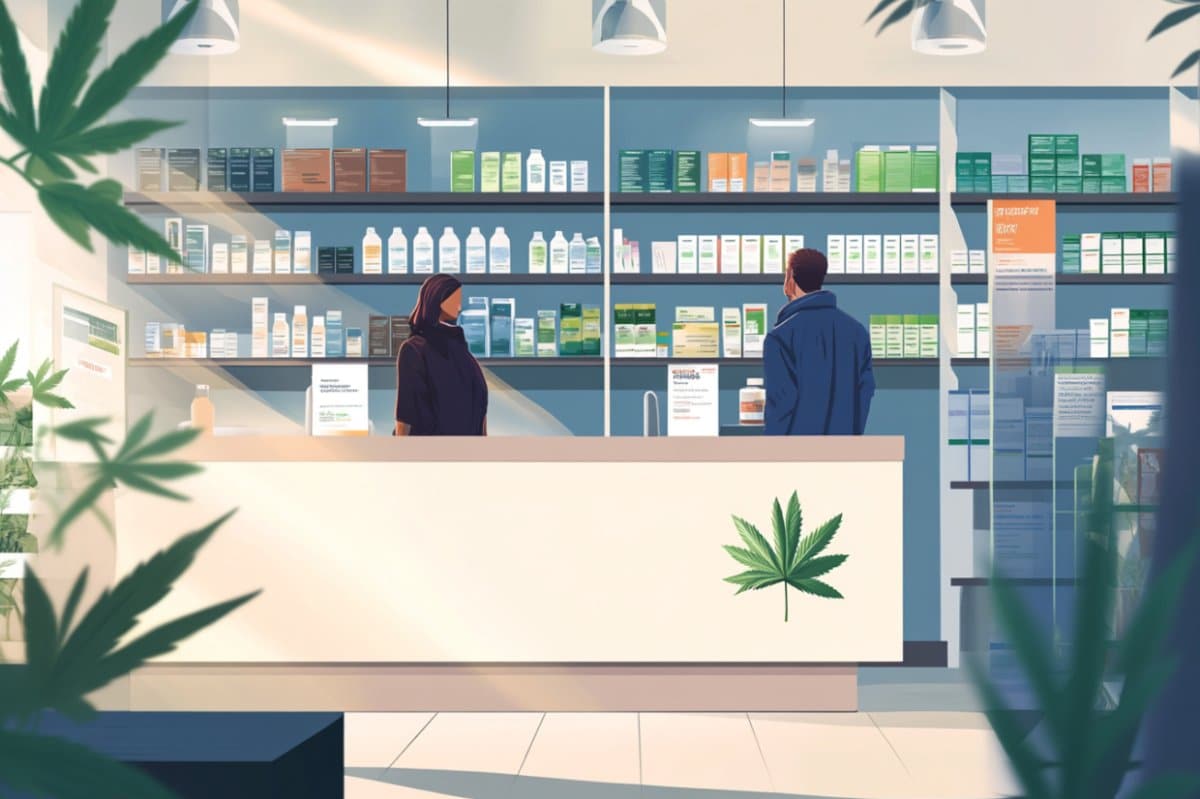Legal Cannabis Linked to Less Problematic Use, Better Mental Health
May 8, 2025
Summary: The Weed Care study in Switzerland is investigating how legal access to cannabis affects users’ consumption and mental health. In the first randomized trial of its kind, participants buying cannabis legally showed a slight decline in problematic use, especially among those who also used other drugs.
Importantly, no increase in mental health issues like depression or anxiety was observed in the legal access group compared to those purchasing on the black market. After six months, the control group also gained legal access, and results after two years suggest improved overall mental wellbeing among all participants.
Key Facts:
- Problem Use Reduced: Legal cannabis access led to a slight decline in problematic use, notably among polydrug users.
- Mental Health Stable: No increase in depression, anxiety, or other symptoms was observed with legal access.
- Improved Wellbeing: Two years into the study, overall mental health of participants with legal access has improved.
Source: University of Basel
In Switzerland and several other countries, debates about the legalization of cannabis use have been ongoing for years. They are shaped by various hopes and concerns.
On the one hand, there are the aims of curbing the black market, making it easier for consumers to access safer products, facilitating access to counseling, and promoting lower-risk consumption.
On the other hand, there are fears that legal sales could normalize consumption, possibly even encouraging it and leading to more cases of addiction and mental disorders.

An interdisciplinary research team aims to provide a scientific basis for the debate: The Weed Care study started in January 2023 as a collaboration of the Addiction Department of the Department of Health of the Canton of Basel-Stadt, the University of Basel, the University Psychiatric Clinics Basel (UPK) and Psychiatric Services Aargau.
The first academically designed study
During the first six months, the study design allowed for a direct comparison of two randomized groups: half of the approximately 370 participants were able to buy legal cannabis in one of the nine participating pharmacies and were offered counseling in the process.
As a control group, the other half continued to use the black market as a source. The participants reported on their consumption and their mental state via questionnaires at regular intervals.
“There has never been a controlled, randomized study like this before,” emphasizes Dr. Lavinia Baltes-Flückiger, deputy head of the study at the Psychiatric Services Aargau and lead author of the study, which has now been published. Previous results were based on purely observational studies.
A decline in problematic consumption
As the team reports in the scientific journal Addiction, problematic consumption decreased slightly in the group with legal access to cannabis. Consumption is considered problematic if it causes or exacerbates health, social or psychological difficulties – even without dependency in the classic sense.
In particular, a more substantial positive effect through legal access was seen in people who used other drugs in addition to cannabis.
“In this subgroup, problematic cannabis use experienced a significant drop,” says Baltes-Flückiger.
Furthermore, the study was able to dispel fears that legalization could exacerbate the psychopathological symptoms associated with cannabis consumption in addition to consumption itself: after the first six months, there was no difference between the two study groups in terms of depression, anxiety or other symptoms.
After this period, the control group, which had previously obtained cannabis on the black market, also obtained legal access to the substance through one of the participating pharmacies.
According to Baltes-Flückiger, they had been assured of this at the beginning of the study as motivation for taking part.
The interim assessment after two years of study shows a significant improvement in the mental state of the approximately 300 or so participants who are still taking part. “Legal access eases the burden on consumers,” explains head of the study Professor Marc Walter from the University of Basel and Psychiatric Services Aargau.
About this legal cannabis, CUD, and mental health research news
Author: Angelika Jacobs
Source: University of Basel
Contact: Angelika Jacobs – University of Basel
Image: The image is credited to Neuroscience News
Original Research: Open access.
“Effects of legal access versus illegal market cannabis on use and mental health: A randomized controlled trial” by Lavinia Baltes-Flückiger et al. Addiction
Abstract
Effects of legal access versus illegal market cannabis on use and mental health: A randomized controlled trial
Aims
We measured the effects of public health-oriented cannabis access compared with the illegal market on cannabis use and related mental health outcomes in adult cannabis users.
Design
This was a two-arm, parallel group, open-label, randomized controlled trial. Follow-up outcome measurement took place after 6 months.
Setting
The study was conducted in Basel-Stadt, Switzerland.
Participants
A total of 378 adult (aged ≥18 years) cannabis users were enrolled and randomized between August 2022 and March 2023, although only 374 users who completed baseline measures could be included.
Intervention and Comparator
Participants were randomly assigned to the intervention group with public health-oriented recreational cannabis access in pharmacies (regulated cannabis products, safer use information, voluntary counseling, no advertisement; 189/188) or the illegal market control group (continued illicit cannabis sourcing; 189/186).
Measurements
The primary outcome was self-reported severity of cannabis misuse after 6 months, as measured by the Cannabis Use Disorders Identification Test – Revised (range 0–32). Secondary outcomes involved depressive, anxiety, and psychotic symptoms, cannabis consumption amount, alcohol, and drug use.
Findings
Ten participants were not followed (2.7%). Primary analysis included those with complete data (182 vs. 182). There was some evidence of a difference in cannabis misuse between the legal cannabis intervention group (mean [M] = 10.1) and the illegal market control group (M = 10.9; β = −0.69, 95% confidence interval [CI] = −1.4 to 0.0, P = 0.052). These results were supported by an intention-to-treat multiple imputation analysis (n = 374).
Additional sub-group analysis by whether the participant used other drugs or not suggested that any reduction in cannabis misuse was confined to those in the legal cannabis intervention group who used other drugs (PInteraction < 0.001). We found no statistically significant changes in any of the secondary outcomes.
Conclusions
Public health-oriented recreational cannabis access may decrease cannabis use and cannabis-related harms, especially among those using other drugs.
Search
RECENT PRESS RELEASES
Related Post




